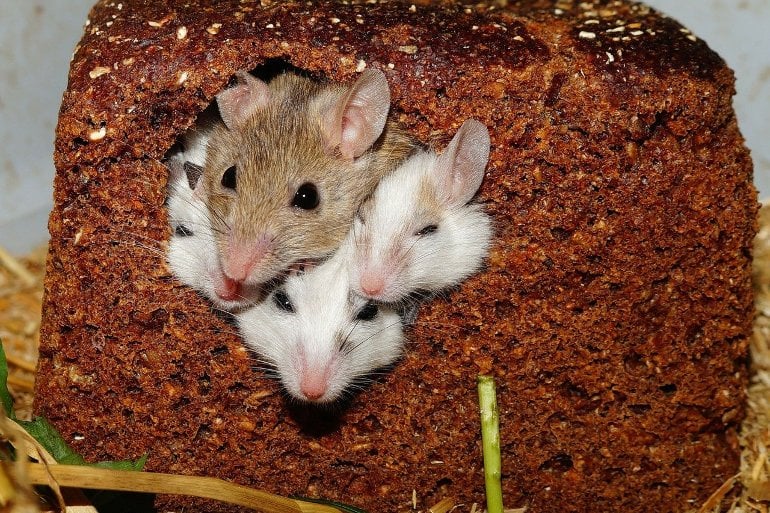Summary: Stressed male mice can pass down their behaviors to their offspring via alterations in their sperm’s DNA, a new study reports.
Source: SfN
Male mice more susceptible to stress can pass down their behaviors to offspring via changes in their sperm’s genetic code, according to new research published in Journal of Neuroscience.
Stressful experiences alter gene expression, which parents can pass down to their offspring. But it was unclear if sperm itself transmits this information, or if behavioral cues between the parents play a larger role.
Cunningham et al. tracked the stress response of male mice after ten days of chronic stress and sorted them into resilient and susceptible groups, based on the severity of their response.
The offspring of resilient and control mice showed decreased stress behaviors compared to the offspring of the susceptible mice.
The same pattern appeared in offspring conceived via artificial insemination, indicating sperm plays a direct role in the transmission of stress responses.

The researchers also sequenced the RNA in the father’s sperm — the transcriptome — before and after the chronic stress. Stress changed 1460 genes in susceptible mice but only 62 genes in resilient mice.
These results reveal sperm transmits short-term environmental information to offspring through changes in the transcriptome.
About this genetics and stress research news
Source: SfN
Contact: Calli McMurray – SfN
Image: The image is in the public domain
Original Research: Closed access.
“Sperm Transcriptional State Associated With Paternal Transmission of Stress Phenotypes” by Ashley M. Cunningham, Deena M. Walker, Aarthi Ramakrishnan, Marie. A. Doyle, Rosemary C. Bagot, Hannah M. Cates, Catherine J. Peña, Orna Issler, Casey Lardner, Caleb Browne, Scott J. Russo, Li Shen and Eric J. Nestler. Journal of Neuroscience
Abstract
Sperm Transcriptional State Associated With Paternal Transmission of Stress Phenotypes
Paternal stress can induce long-lasting changes in germ cells potentially propagating heritable changes across generations. To date, no studies have investigated differences in transmission patterns between stress-resilient and -susceptible mice.
We tested the hypothesis that transcriptional alterations in sperm during chronic social defeat stress (CSDS) transmit increased susceptibility to stress phenotypes to the next generation. We demonstrate differences in offspring from stressed fathers that depend upon paternal category (resilient vs susceptible) and offspring sex.
Importantly, artificial insemination reveals that sperm mediates some of the behavioral phenotypes seen in offspring. Using RNA-sequencing we report substantial and distinct changes in the transcriptomic profiles of sperm following CSDS in susceptible vs resilient fathers, with alterations in long noncoding RNAs (lncRNAs) predominating especially in susceptibility. Correlation analysis revealed that these alterations were accompanied by a loss of regulation of protein-coding genes by lncRNAs in sperm of susceptible males.
We also identify several co-expression gene modules that are enriched in differentially expressed genes in sperm from either resilient or susceptible fathers. Taken together, these studies advance our understanding of intergenerational epigenetic transmission of behavioral experience.
SIGNIFICANCE STATEMENT
This manuscript contributes to the complex factors that influence the paternal transmission of stress phenotypes.
By leveraging the segregation of males exposed to chronic social defeat stress into either resilient or susceptible categories we were able to identify the phenotypic differences in the paternal transmission of stress phenotypes across generations between the two lineages.
Importantly, this work also alludes to the significance of both long noncoding RNAs and protein coding genes mediating the paternal transmission of stress.
The knowledge gained from these data is of particular interest in understanding the risk for the development of psychiatric disorders such as anxiety and depression.







